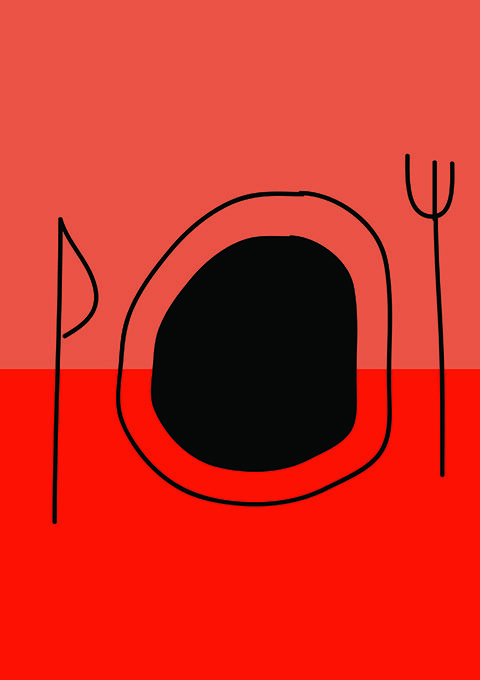I have seven siblings. If you’re still not paying attention – we were all home schooled. Not Mormon either. Good luck explaining your abundance mindset to a child whose entire childhood experience consisted of every rare, coveted, hyper-palatable snack food mom and dad brought home in between bouts of home cooked casseroles disappearing in seconds flat. I’d have told you to f*ck off if I’d had the vocabulary.
These formative years have a deep effect on our patterns of behavior. It took years for me to connect at least some of my lack of portion control to these specific experiences as a child. The subconscious fear that good things won’t last, that there isn’t enough to go around. I’m not blaming parents. There’s no definitive guidebook and this is the first generation where we can search Google every time we want to know “the best way to: (fill in the blank).”
This isn’t a free pass to go out and binge on low quality processed foods, but it is a case against orthorexia: that is, an obsession over avoiding all foods that we or others have labeled as “bad.”
Parents do the best they can and as individuals we have to take the baton and run with it. However, when we talk about creating and sustaining healthy eating habits it’s as important to understand our relationship with food as it is to understand which foods can do what in our bodies and how to best use them to our advantage.
Developing self awareness is the key to self-improvement. This applies across the board. We live in an age of information overload. Trying to find definitive answers on how and what to eat can leave us overwhelmed, confused and with the impression that cuisine is conspiring against us. The truth is there isn’t one diet for everyone, or anyone.
Humans are extremely adaptable creatures; look at how far we’ve made it. Mass extinctions, ice ages, solar flares, floods; we’ve survived it all and rebuilt. For the course of our existence we’ve eaten what we had to in order to survive. If we could catch animals, we’d eat animals. If there were plants available, we’d eat plants. If we couldn’t find food, we’d fast and occasionally we’d eat things that made us sick, because it was better than dying. Research has even found cannibalism typically evolved in areas of the world starved for protein. Am I suggesting we feast on human flesh? Nope! Fortunately we have an abundance of bioavailable protein to fuel us without eating each other. Consider that as one of the perks of globalism.
In this new world (dis)order our abundance of choices raises new challenges. Faced with the possibility to have almost anything, the challenge isn’t eating enough, but rather a matter of analyzing those infinite choices and choosing to eat in a way that supports our optimal function. The headlines in the health industry may convince us that this amounts to avoiding all the foods that cause inflammation or never eating grains and so on. But I see things a little bit differently. We didn’t come this far by being so rigid in our routines. If we never stretch we never become flexible and when we lack flexibility we end up getting injured when suddenly presented with a situation that doesn’t fit our limited plane of mobility. This is true for the metabolism as well. As a matter of fact, it’s true for our entire physiology. We chase comfort, but in the absence of adversity we grow fragile and restless.
This isn’t a free pass to go out and binge on low quality processed foods, but it is a case against orthorexia: that is, an obsession over avoiding all foods that we – or others – have labeled as “bad.” Find a balance between eating the foods that keep us functioning at our highest level and not worrying about it too much. When we don’t have a healthy choice, we have a decision to make – fast (temporarily not eating) or consume the unhealthy option. Whatever the choice, we must do it will full acceptance and no guilt. Don’t think of it as unhealthy, think of it as exercise. Then recover properly and move on stronger and with greater agility. Avoid the stress of arguing with reality. Undue stress is never part of a healthy diet.
In regards to diets, experiment with different modalities. Let’s analyze how different diets work for each of us and then add them to our toolbox. The optimal food choices will fluctuate according to current priorities and various other aspects of our lives. Over time we learn how different eating styles benefit us in different ways and how to adapt in real time.
As humans, our diets shouldn’t be cut and dry. They should be rich, flavorful and varied according to what serves our current goals. This is always going to fluctuate, there is no right answer. Most freeing of all, everything is good for something.
Abraham Wolke is dedicated to human performance with a dose of fun. He is a cofounder of The Wildfire Initiative and of leading hemp protein bar company, Hemplete.






